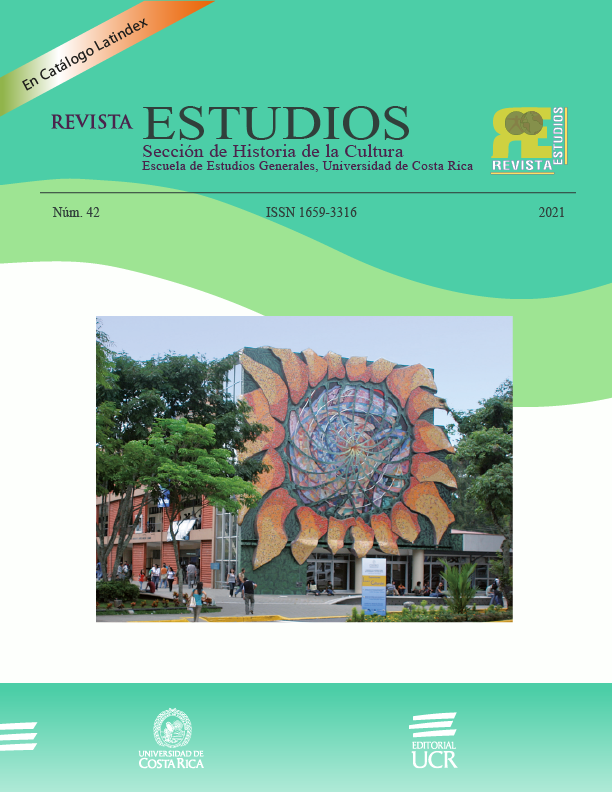Abstract
The objective of this article is to investigate by means of the content analysis method 1) texts that deal with the theory of emotions, as well as 2) articles that study emotions applied to the work environment, in order to show the state of the art on this subject, identifying the ways in which these bonds are constructed. To this end, the first part deals with the components of emotions, and the second part analyzes the relationship between emotions and the work environment. It is intended to show the discourse on how they influence ethical decision making from an organizational perspective. Finally, strategies to educate employees and organizations towards the development of emotions are proposed, and a table derived from the content analysis is provided.
References
Abubakar, A.M., Yazdian, T.F. y Behravesh, E. (2018). A ripose to A riposte to ostracism and tolerance to workplace incivility: A generational perspective. Personnel Review (47), 441-457.
Appolus, O., Niemand, L., & Karodia, A. M. (2016). An evaluation of the impact of emotional intelligence on team effectiveness among IT professionals at bytes systems integration (South Africa). Kuwait Chapter of the Arabian Journal of Business and Management Review (5), 79-127
Aristóteles. (2011). Ética Nicomáquea. Madrid: Gredos.
Basu, R. (2017). The role of emotional intelligence in the decision making process of correlational officers, of the West Bengal correctional services. Journal of Services Research (16), 67-78.
Benozzo, A., y Colley, H. (2012). Emotion and learning in the workplace: Critical perspectives. Journal of Workplace Learning, 24(5), 304-316.
Bratton, J., & Waton, S. (2018). Talent management, emotional labour and the role of line managers in the scottish hospitality industry. . Worldwide Hospitality and Tourism Themes, 10(1), 57-68
Camps, V. (2011). El gobierno de las emociones. Barcelona: Herder.
Chawla, V. (2016). Workplace spirituality governance: Impact on customer orientation and salesperson performance. The Journal of Business & Industrial Marketing, 31(4), 498-506.
Chen, Y., y Nakazawa, M. (2017). Emotions and pan-asian organizing in the U.S. southwest: Analyzing interview discourses via sentiment analysis. Voluntas, 28(6), 2785-2806.
Christie, A. M., Jordan, P. J., y Troth, A. C. (2015). Trust antecedents: Emotional intelligence and perceptions of others. International Journal of Organizational Analysis, 23(1), 89-101.
Comer, D. R., y Schwartz, M. (2017). Highlighting Moral Courage in the Business Ethics Course. JBE; Dordrecht Tomo 146, N.º 3,, 703-723.
Demirtas, O., Hannah, S. T., Gok, K., Arslan, A., y Capar, N. (2017). The moderated influence of ethical leadership, via meaningful work, on followers’ engagement, organizational identification, and envy: JBE. Journal of Business Ethics, 145(1), 183-199.
Eissa, G., Lester, S. W., y Gupta, R. (2019). Interpersonal Deviance and Abusive Supervision: The Mediating Role of Supervisor Negative Emotions and the Moderating Role of Subordinate Organizational Citizenship Behavior. Journal of Business Ethics; Dordrecht, 1-18.
Eketu, C. A., y Ayondu, O. A. (2017). Devolving the thought on workplace emotions for gainful research: A theoretical reflection. Journal of Organisation and Human Behaviour, 6(3), 1-14
Fichter, R. (2018). Do the Right Thing! Developing Ethical Behavior in Financial Institutions. Journal of Business Ethics, 69-84.
Ford, M. T., Agosta, J. P., Huang, J., y Choe, S. (2018). Moral emotions toward others at work and implications for employee behavior: A qualitative analysis using critical incidents. Journal of Business and Psychology, 33(1), 155-180.
Gupta, V., y Devalina. (2015). Role of positive emotions in organisational coping. Journal of Organisation and Human Behaviour, 4(2), 52-61.
Hazelton, S. (2014). Positive emotions boost employee engagement: Making work fun brings individual and organizational success. Human Resource Management International Digest, 22(1), 34-37.
Huxtable-Thomas, L., Hannon, P. D., y Thomas, S. W. (2016). An investigation into the role of emotion in leadership development for entrepreneurs. International Journal of Entrepreneurial Behaviour & Research, 22(4), 510-530.
Hyun, J. L. (2013). An empirical analysis of the relationship between emotional intelligence and emotion work: an examination of public service employees. International Review of Public Administration, 18(2), 85-108.
Klerk, J. J. (2017). Nobody is as Blind as Those Who Cannot Bear to See: Psychoanalytic Perspectives on the Management of Emotions and Moral Blindness. Journal of Business Ethics, 745–761.
Landis, E. A., Vick, C. L., y Novo, B. N. (2015). Employee attitudes and job satisfaction. Journal of Leadership, Accountability and Ethics, 12(5), 37-42.
Lindebaum, D., Geddes, D., y Gabriel, Y. (2017). Moral Emotions and Ethics in Organisations: Introduction to the Special Issue. Journal of Business Ethics, 645-656.
Linehan, C., y O'brien, E. (2017). From Tell-Tale Signs to Irreconcilable Struggles: The Value of Emotion in Exploring the Ethical Dilemmas of Human Resource Professionals. Journal of Business Ethics, 763-777.
Lurie, Y. (2004). Humanizing Business through Emotions: On the Role of Emotions in Ethics. Journal of Business Ethics 49, 1–11
McManus, J. (2019). Emotions and Ethical Decision Making at Work: Organizational Norms, Emotional Dogs, and the Rational Tales They Tell Themselves and Others. Journal of Business Ethics.
Nussbaum, M. C. (2002). Las mujeres y el desarrollo humano. Barcelona: Herder.
Nussbaum, M. C. (2008). Upheavals of thought: the intelligence of emotions. Cambridge University Press.
Palop, L. (2011). El modelo de racionalidad de Martha C. Nussbaum: emociones, capacidades y justicia (Tesis doctoral). Valencia: Universidad de Valencia.
Patton, M. Q. (2002). Qualitative research & evaluation methods (3rd ed.). Thousand Oaks, CA: Sage.
Pinedo-Cantillo, I., y Yañes, J. (2017). La dimensión cognitiva de las emociones en la vida moral: los aportes de Martha Nussbaum al estado de la discusión. Cuestiones de Filosofía 3(20), 105-127.
Quade, M. J., Greenbaum, R. L., y Mawritz, M. B. (2019). “If Only My Coworker Was More Ethical”: When Ethical and Performance Comparisons Lead to Negative Emotions, Social Undermining, and Ostracism. Journal of Business Ethics: JBE; Dordrecht 159(2), 567-586.
Schreier, M. (2012). Qualitative content analysis in practice. Thousand Oaks, CA: Sage
Tutor2u (2020). Research Methods - Content Analysis. Recuperado de https://www.tutor2u.net/psychology/reference/research-methods-content-analysis%20
Verneaux, R. (2002). Curso de filosofía tomista: filosofía del hombre. Barcelona: Herder.


